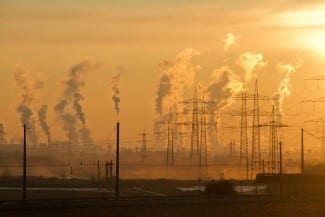Emissions Reduction Alberta Industrial Efficiency Challenge: $70M Awarded

In order to reduce greenhouse gas (GHG) emissions and succeed in a low-carbon economy, the province of Alberta requires more clean technology developers to lead their ideas through to commercialization. To contribute to this endeavor, 11 Alberta cleantech projects have received government funding support. These chosen initiatives are expected to account for collective greenhouse gas (GHG) reductions of more than 5.3 million tonnes of CO₂e by 2030.
Emissions Reduction Alberta has awarded a total of $70,200,000 to 11 projects through its Industrial Efficiency Challenge.
The Emissions Reduction Alberta (ERA) program supports the development of innovative technologies that can significantly reduce greenhouse gas (GHG) emissions. The Industrial Efficiency Challenge was an open call to Large Final Emitter (LFE) industrial facilities in Alberta who were implementing new technologies that reduce operating costs and emissions.
$70M in Alberta Government Funding for 11 Projects
The Industrial Efficiency Challenge, administered via Emissions Reduction Alberta (ERA), has awarded 11 clean technologies that could benefit multiple sectors, leading to further emission reductions and additional economic diversification opportunities.
The awarded initiatives are worth a combined value of over $267M and received $70.2 in funding from the ERA challenge.
The 11 companies, projects, and funding amounts include:
Repsol Oil and Gas Canada
($1,140,000) Repsol Oil and Gas Canada will conduct a demonstration of the transition from hydrocarbons to inert gas technology for gas blanketing and purge in the gas processing industry.
Suncor Energy Inc. Oil Sands
($2,500,000) Suncor Energy Inc. Oil Sands will develop digital optimization using advanced process control in an in-situ facility.
Athabasca Oil Corporation
($4,336,260) Athabasca Oil Corporation will implement flow control devices (FCD) and non-condensable gas (NCG) injection at in situ facilities in the Alberta oil sands.
Imperial Oil Limited
($6,000,000) Imperial Oil Limited will demonstrate a ConDex Flue Gas Heat and Water Recovery system at its Kearl facility.
ConocoPhillips Canada
($6,000,000) ConocoPhillips Canada will field pilot a multilateral well technology to reduce the GHG intensity of Steam Assisted Gravity Drainage (SAGD).
Alberta-Pacific Forest Industries Inc.
($6,000,000) Alberta-Pacific Forest Industries Inc. will deploy a heat recovery system at the Al-Pac Kraft Pulp Mill to capture heat from the plant’s flue gas stream.
ENMAX Generation Portfolio Inc.
($7,284,390) ENMAX will install Canada’s first Hybrid Electric Gas Turbine at its Crossfield Energy Centre in Alberta.
TransCanada Energy
($8,000,000) TransCanada will develop a demonstration project on energy supercritical CO₂ waste heat recovery, and utilization technology.
Lafarge Canada
($10,000,000) Lafarge Canada is advancing a multi-partner, multi-site project aimed at lowering carbon fuels.
TAQA North Ltd.
($10,000,000) TAQA North Ltd. is doing a development project at its Crossfield Gas Plant for energy efficiency and GHG reduction.
Energreen Solutions
($10,000,000) Energreen Solutions will implement a heat recovery system at the Rio Tinto Alcoa Strathcona Works (SW) manufacturing facility in Edmonton.
Emissions Reduction Alberta: Industrial Efficiency Challenge
Launched in March 2018, the Industrial Efficiency Challenge targeted first-time demonstration opportunities to reduce GHG emissions and improve cost competitiveness among large industrial emitters in Alberta.
The challenge offered cleantech funding to help accelerate the placement and adoption of these technologies and support Alberta’s Large Final Emitters (LFE) subject to the Carbon Competitiveness Incentive Regulation (CCIR). LFE’s include facilities that emit more than 100kT per year or facilities that choose to opt into the CCIR.
Large Final Emitters in Alberta can be found in a range of sectors including chemical, mining, pipelines, food manufacturing, energy, power generation, and waste treatment.
The challenge was intended to advance leading industrial efficiency technologies in Alberta. Some of the focus areas included:
- Industrial carbon conversion/utilization;
- Electrification, fuel switching, and alternative feedstocks; and
- Industrial transportation and logistical optimization.
This Alberta government funding program is currently closed and has not yet announced a re-opening date.
To stay up to date on business grants, industry and funding news, and resources geared to Canadian businesses, sign up for Mentor Works’ Weekly Funding Newsletter.
